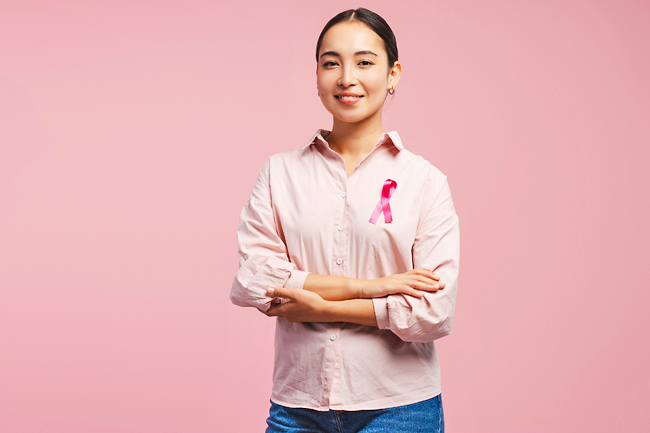October is here, and with it comes a global commitment to spotlight a challenging foe – breast cancer. It’s a month when pink ribbons take over, serving as a reminder that this disease, often subtle in its early stages, can turn lives upside down.
While it’s easy to get lost in a sea of pink-themed events, October’s true essence lies in raising awareness about breast cancer’s dangers and the life-saving impact of early detection.
This month isn’t just about donning pink; it’s a chance to empower ourselves with knowledge, which remains our most powerful weapon.
By fostering conversations about breast cancer, we offer hope to those currently in the battle and support to their loved ones. Each voice counts in this ongoing conversation – one that could make all the difference in saving lives.
BRUNEI’S FIGHT AGAINST BREAST CANCER
Pantai Jerudong Specialist Centre (PJSC) is a key player in breast cancer awareness across Brunei Darussalam.
Through its branch, The Brunei Cancer Centre (TBCC), PJSC runs initiatives year-round, with a special focus in October. These efforts include educating the public about breast cancer prevention, encouraging regular screenings, and collaborating with local organisations to spread awareness.
From promoting breast self-examination to organising community outreach events, the Centre ensures that the message reaches every corner of Brunei.
According to an article written by TBCC of PJSC Consultant Medical Oncologist, Dr Raden Mas Jeffri Raden Mas Ismail, the urgency of this mission is clear. Breast cancer is the most common cancer among Bruneian women, with a significant rise in lifetime risk over the past decade.
A Bruneian woman’s chance of developing breast cancer has jumped from one in 16 to one in six, a stark reminder of the importance of early detection and preventive measures.


UNDERSTANDING THE RISK FACTORS
Furthermore, Dr Raden Mas Jeffri emphasised that prevention plays a crucial role in the fight against breast cancer. This requires a clear understanding of the risk factors – some of which are beyond our control, while others can be managed or reduced through lifestyle choices.
Let’s take a closer look at what contributes to breast cancer risk.
NON-MODIFIABLE RISK FACTORS
Being Female
While breast cancer can occur in men, it is far more common in women due to the presence of hormones like oestrogen and progesterone that can fuel cancer cell growth.
Age
The risk of breast cancer increases as women age, with most cases occurring in those over 55. Yet, it’s not exclusive to older women, as younger women can also be affected.
Family History
A close family history of breast or ovarian cancer can significantly increase a woman’s risk. For instance, having a mother or sister with breast cancer nearly doubles the risk.
Genetics
About five per cent to 10 per cent of breast cancer cases are hereditary. Mutations in genes like BRCA1 and BRCA2 are the most common culprits, raising a woman’s lifetime risk of developing breast cancer to as much as 70 per cent. While most cases aren’t inherited, those with a strong family history may benefit from genetic counselling.
Previous Breast Cancer
Women with a history of breast cancer have a higher chance of developing a new cancer in the other breast. This risk, while generally low, is more prominent in younger women.
MODIFIABLE RISK FACTORS
While we cannot change certain aspects, Dr Raden Mas Jeffri noted that many risk factors can be managed through lifestyle choices:
Smoking
Known to increase the risk of various cancers, long-term smoking also raises the likelihood of breast cancer.
Weight and Diet
Maintaining a healthy weight, especially after menopause, and opting for a diet rich in fruits and vegetables can lower risk. Obesity has been linked not only to breast cancer but also to 11 other types of cancer.
Alcohol Consumption
Even light drinking can elevate breast cancer risk. Limiting alcohol intake is a simple but effective way to manage this risk.
Physical Activity
Regular exercise plays a significant role in lowering breast cancer risk, highlighting the importance of an active lifestyle.
Breastfeeding
For mothers who are able, breastfeeding for a year or more can slightly reduce the risk of breast cancer.
DISPELLING MYTHS ABOUT BREAST CANCER
In an age where information is just a click away, myths about breast cancer spread quickly. Here’s the truth behind some of the most common misconceptions:
Antiperspirants and Deodorants
There’s no scientific evidence linking these products to breast cancer.
Bras
Despite popular claims, wearing a bra – underwired or otherwise – has no impact on breast cancer risk. A comprehensive study found no association between bra usage and breast cancer.
Abortions
Studies show that neither induced nor spontaneous abortions increase the risk of developing breast cancer.
COLLABORATIVE EFFORTS FOR A HEALTHIER TOMORROW
With breast cancer cases rising in Brunei, focusing on effective prevention and treatment is increasingly crucial. This involves advanced medical treatments, community outreach, and public awareness.
A comprehensive approach prioritises early detection and tailored support for those at higher risk. Key methods include advanced systemic therapies like targeted treatments and radiation therapy, offering personalised care.
Genetic testing has become vital for understanding inherited risks, particularly benefiting those with a family history of breast cancer.
While local efforts are important, aligning with global standards and networks ensures Brunei can access the latest advancements, contributing to a broader fight against breast cancer. – Izah Azahari



















































